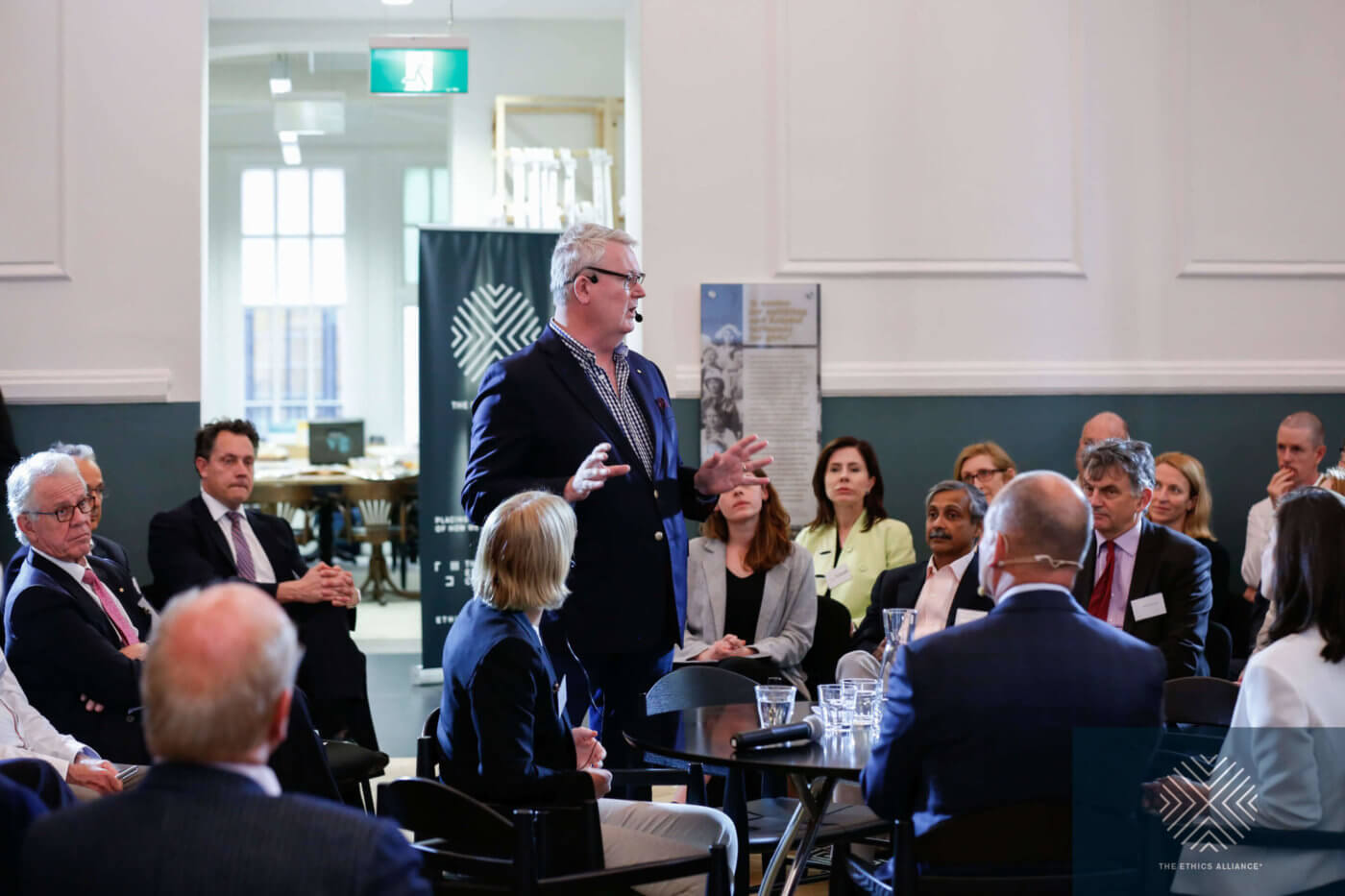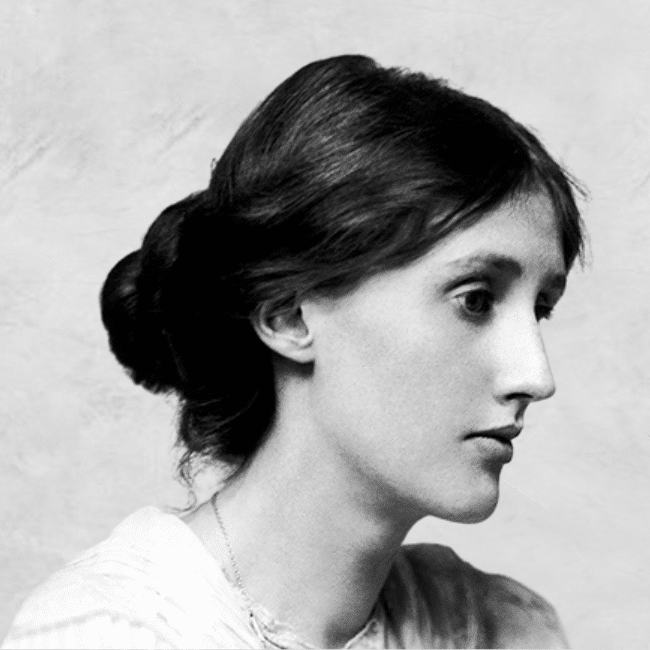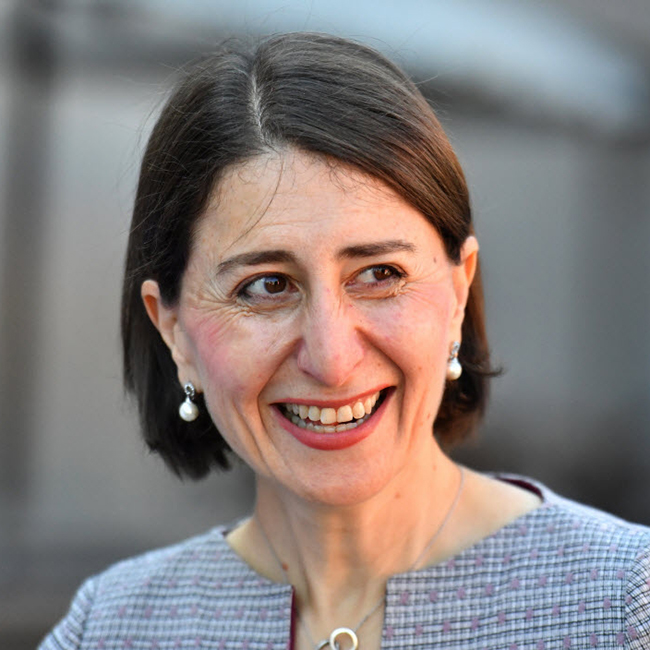Periods and vaccines: Teaching women to listen to their bodies

Periods and vaccines: Teaching women to listen to their bodies
Opinion + AnalysisHealth + WellbeingRelationshipsScience + Technology
BY Lucy Peach 1 APR 2022
Most people probably know more about the cycle on a washing machine than the one that got us all here. I’m talking about the menstrual cycle (again).
It’s true that we’ve made major gains in shedding some of the menstrual stigma in recent years but there is still a lack of awareness and interest in the cyclical lives of 26% of all people on Earth. There are real consequences to this.
For a start, menstrual education is still reduced to two things: the management of a period and how to control our capacity to reproduce. No one explained that the hormones of the menstrual cycle weren’t just for making babies and that my cycle hormones shape who and how I am. I didn’t know, that far from being an unpredictable rollercoaster (that I would internalise as constant feelings of being too much or not enough), that there was a pattern to the emotional landscape of my month, that there were predictable phases to the cycle that could be harnessed. That it was ok to feel differently from week to week.
At a tender age, I learnt that my body was a problem to be fixed, with pads, tampons and soon enough with the pill. I believed I was safest while my cycle was disarmed. Until I was ready for a baby, what was the point in having one at all or so I thought? The truth is, without ovulation, we have no hormones and therefore no cycle at all. I wonder, would I have been so eager to reject ovulation in favor of the pill during my teens and twenties had I known of this?
I didn’t know that there were short and long-term protective health benefits to ovulation that taking the pill would eliminate. I didn’t know it was common to feel depressed and flat while taking it. I felt crazy. Instead of cultivating care and curiosity for my young body and what it could do, I leant not to trust it.
This disregard for menstrual cycles extended to the scientific community such that until the 90’s, clinical trials for new drugs weren’t required to include women at all.
Because menstrual cycles were seen as too complicated, men were considered the biological norm.
It seems that even amid a growing movement of awareness and appreciation for menstrual cycles, this default male setting still persists.
When thousands and thousands of women and menstruators reported changes to their cycle after taking the Covid vaccine, their concerns were initially dismissed by the medical fraternity. Women were waved away and stress was cited as the probable culprit for the mostly temporary changes.
It is true that stress can wreak havoc on a cycle — and who hasn’t felt stressed in new ways since the arrival of the pandemic? But the real kicker, was that there was no proof to speak of; important early clinical trials investigating the side effects of the Covid vaccine failed to consider the impacts on women’s menstrual cycles. This glaring omission at such a critical juncture is menstrual stigma still in action. That women were dismissed before being asked about their experiences after the vaccine is an indictment into how far we haven’t come.
Women were dismissed before being asked about their experiences after the vaccine is an indictment into how far we haven’t come.
In the absence of due diligence, people worried and concerns for post vaccination fertility also proliferated, risking confidence in the vaccine unnecessarily.
Vaccines work by creating an immune response which can cause the body stress. It stands to reason that there might be side effects to our cycles when our immune system is triggered. The latest research was funded by the NIH and published in Obstetrics and Gynecology. It was confirmed that while changes were (on average) minor and temporary, it was true: there was an impact. After looking at three cycles before and after vaccination, on average, the impact on cycle length following vaccination was just under a day.
For people who had both shots within one cycle, the average cycle length extension was 2 days and of these people, there were 10% who experienced cycle delays of 8 days or more. All of these changes were reported to have been resolved within two subsequent cycles and there was no effect found on the length of the bleed itself. Obviously within all of the experiences that create averages, the range for individuals could be considerable but with variations of up to 8 days considered to be within the realm of a normal cycle, these results are generally reassuring. Furthermore, in another study with more than 2000 couples there was no difference found in fertility when comparing unvaccinated and vaccinated couples. Conversely, a Covid infection was associated with a temporary decline in male fertility. So far so good.
Research like this is a positive step after a bungled start and authors of the menstrual study have called for more investigation into how the Covid-19 vaccination could affect other aspects of menstruation such as pain and changes to the bleeding itself. Going forward, bigger sample sizes that also include menstruators with more varied experiences are important.
With access to information and the stains of stigma beginning to fade, women and menstruators are learning to listen to their bodies and to speak up about their experiences. To be wary of doctors who prescribe the pill to fix a period when it merely masks underlying issues. To demand better than the average wait time of eight years to receive an endometriosis diagnosis and subsequent treatments. Weary of being disregarded when it comes to our health, we are finally beginning to trust ourselves. As Lisa Hendrickson-Jack explains in ‘The Fifth Vital Sign’, the menstrual cycle gives us important insights and is a critical marker of our overall health, just like heart rate or body temperature. Understanding your menstrual cycle is basic body literacy that is crucial to wellness.
The changes to menstrual cycles may be no more significant than a sore arm, but that doesn’t mean we don’t deserve to know about them. Small changes can still be significant to people hoping to plan or avoid a pregnancy, for instance. We need vaccines to combat Covid but we also need to be informed.
If there are any silver linings to be had during Covid it’s that we know that the old ‘normal’ wasn’t working for many of us.
Women’s health has long been overlooked, under-researched and under reported and now perhaps the new normal is to consider women’s health from the outset.
Hopefully it will be for the future we are carrying.
Normalise asking people about their cycles whether you are a researcher, a doctor, a partner or even a friend. Normalise noticing your own cycle and how you feel throughout the month. Normalise expecting better.
Lucy Peach, day 28 and vaccinated.
Ethics in your inbox.
Get the latest inspiration, intelligence, events & more.
By signing up you agree to our privacy policy
You might be interested in…
Opinion + Analysis
Relationships
Appreciation or appropriation? The impacts of stealing culture
Opinion + Analysis
Relationships
We need to talk about ageism
Opinion + Analysis
Science + Technology
Australia, we urgently need to talk about data ethics
Opinion + Analysis
Relationships, Society + Culture
Meet David Blunt, our new Fellow exploring the role ethics can play in politics
BY Lucy Peach
Lucy Peach is a long-time champion of the power of the menstrual cycle and an advocate for self-love and positive body literacy. She’s educated and empowered thousands with her theatre performances, workshops, and book, using science stories and songs to shift the period narrative in our culture from one of shame to one of pride. Lucy has spent the past two decades studying human biology, woman’s health & wellbeing, and Menstruality Leadership. She has a Bachelor of Science in human biology and biomedicine with honours in medicine, and a graduate diploma of education in human biology.
The Dark Side of Honour

The Dark Side of Honour
Opinion + AnalysisPolitics + Human RightsRelationships
BY Dr Tim Dean 30 MAR 2022
If someone insulted a family member, would you rush to defend their honour? If you said “yes”, then you’re not alone. In fact, American actor Will Smith did just this when he confronted comedian Chris Rock on stage at the 94th Academy Awards in March 2022.
It happened after Rock directed a joke at Smith’s wife, Jada Pinkett-Smith, that appeared to make light of her alopecia, a medical condition that causes hair loss. Smith mounted the stage, strode up to Rock and slapped him across the face, before returning to his seat shouting “Keep my wife’s name out of your fucking mouth!”
Many onlookers in the room and around the world were shocked at this outburst of violence, even if they thought the joke was offensive and hurtful to Pinkett-Smith. But others interpreted things differently. They saw a chivalrous husband doing what a good husband should do.
One such defence of Smith came from American comedian and actress, Tiffany Haddish. “As a woman, who has been unprotected, for someone to say, ‘Keep my wife’s name out your mouth, leave my wife alone,’ that’s what your husband is supposed to do, right? Protect you”, she told the media during the awards.
“That meant the world to me. And maybe the world might not like how it went down, but for me, it was the most beautiful thing I’ve ever seen because it made me believe that there are still men out there that love and care about their women, their wives.”
Haddish is speaking about the importance of an old moral concept: honour. It’s one that has been a core feature of many cultures around the world and throughout history, and even where its influence has waned, it still exerts some pull on our hearts, as we can see in the case of Will Smith.
But honour also has a dark side, not least contributing to violence as well as the oppression of women. The question is whether honour ought to play a role in our ethical thinking today, or whether it should be replaced by a more liberal ethic that prioritises reducing harm and injustice.
Reputation is life
At its heart, honour is about protecting one’s reputation as a virtuous and trustworthy individual. Anything that threatens that reputation, whether scurrilous gossip or a verbal insult, can – or even must – be forcefully challenged, violently if necessary.
Honour is particularly prevalent in smaller-scale societies that lack trustworthy institutions that prevent people from lying or cheating others, like law courts or government regulation of business. In smaller societies, it’s often left to individuals to figure out who can be trusted and who should be avoided.
This is where reputation plays a key role. If you have a good reputation, others will be happy to cooperate with you. If you’re found to be an untrustworthy cheat, word will get around that you should be avoided. In a society where cooperation might be essential to your survival, a bad reputation could be tantamount to a death sentence.
This is one reason why insults trigger such an acute response to people who value honour. An insult does two things: first it besmirches the target’s good name, often accusing them of some deviant or dishonourable act; and second it paints them as being weak, which is seen as a kind of moral vice in itself, especially in honour cultures that have norms that equate masculinity with strength.
As the psychologists Richard Nisbett and Dov Cohen describe in their famous study of the honour culture in the Southern United States:
“A key aspect of the culture of honor is the importance placed on the insult and the necessity to respond to it. An insult implies that the target is weak enough to be bullied. Since a reputation for strength is of the essence in the culture of honor, the individual who insults someone must be forced to retract; if the instigator refuses, he must be punished – with violence or even death.”
Even when honour culture has waned in popularity, as it has in the Southern United States, it can continue to influence the way people behave. Nisbett and Cohen describe one experiment that showed that when university students from Southern states were insulted, they were more likely to show signs of elevated hormones related to stress and aggression than students from the Northeastern states.
The price of honour
If an insult is to be met with force rather than shrugged off, then it can easily descend into conflict even over trivial statements. It can also easily lead to violence. Nisbett and Cohen cite evidence that the homicide rate in the Southern United States is significantly higher than other regions.
But there’s another price of honour: the oppression of women. Honour cultures are usually also patriarchal, with men occupying most of the positions of power. In these societies, men often seek to control women, especially their sexuality.
One motivation is to help ensure the paternity of their children, which is difficult without modern medical technology. One way to do so is to only marry a woman who is virgin and then to control her sexuality to guarantee sexual exclusivity. This is one reason why many honour cultures are obsessed with sexual fidelity, primarily of women, and why promiscuous women can be subject to “honour killings” by their own families.
This connects with another motivation for men to control women’s sexuality: alliances. Marriage has been used as a strategic tool for millennia to create bonds between families, usually to serve the interests of the heads of those families, who were predominantly men.
Again, virginity and sexual fidelity make marriable women more attractive as mates for other men, which feeds into an honour culture that seeks to protect the reputation of women as being faithful and chaste. These same cultures often encourage men to violently respond to any perceived slight against their female family members, or to ostracise or enact violence towards women who choose to deviate from the sexually oppressive norms constraining them.
The decline of honour
None of this is to suggest that Will Smith was seeking to control women as a sexual or political resource. But the same sensitivity to honour that motivated him to stand in his wife’s defence can be used to control and disempower women. Indeed, some interpreted Smith’s slap as robbing Pinkett-Smith of her own voice when it came to defending herself.
While honour can be a vehicle to encourage people to take responsibility for their actions, to promote virtues like honesty and loyalty, it can also place a higher priority on protecting one’s reputation – and that of their family (and often the women in their family) – over de-escalating violence and solving injustices through other means.
Honour is also largely redundant in a world with institutions that protect us from miscreants. We no longer live or die by our reputation. This is why we teach children the “sticks and stones” rhyme. Yet it is all too easy in the heat of the moment to let a sensitivity to our reputation carry us away, compromising the values of care and justice that have become dominant in liberal societies.
It is precisely these values that are reflected in Will Smith’s public apology, posted the day after the Academy Awards when some of the heat had died down. “Violence in all of its forms is poisonous and destructive,” he wrote in an Instagram post. “There is no place for violence in a world of love and kindness.”
The question for each of us to answer next time someone insults us or a loved one is what do we value more: a society of reactive violence or a society where we prioritise compassion and justice through more considered responses?
Image: Ana Gremard / Flickr
Ethics in your inbox.
Get the latest inspiration, intelligence, events & more.
By signing up you agree to our privacy policy
You might be interested in…
Opinion + Analysis
Relationships, Society + Culture
Meet Josh, our new Fellow asking the practical philosophical questions
Explainer
Relationships
Ethics Explainer: Pragmatism
Opinion + Analysis
Business + Leadership, Relationships, Science + Technology
Are we ready for the world to come?
Opinion + Analysis
Society + Culture, Politics + Human Rights
Pleasure without justice: Why we need to reimagine the good life
BY Dr Tim Dean
Dr Tim Dean is Philosopher in Residence at The Ethics Centre and author of How We Became Human: And Why We Need to Change.
Game, set and match: 5 principles for leading and living the game of life

Game, set and match: 5 principles for leading and living the game of life
Opinion + AnalysisBusiness + LeadershipRelationships
BY John Neil 28 MAR 2022
Ash Barty’s shock retirement from tennis while seemingly at the peak of her powers left the sporting world reeling.
But from all accounts it was no surprise to those close to her. From what we’ve learnt about her throughout her career, and especially through her retirement announcement, the lack of surprise from those close to her is a testament to Barty’s principles of leadership.
In times of uncertainty and unpredictability we often look to our folk heroes to provide guidance and inspiration. However, all too often we default to sportspeople as the exemplars for lessons in how to live, cherry picking attributes of heroism and resilience on the field of play only to find our heroes’ winning lustre tarnished when the invariable accounts of various misdeeds or behaviours kept private between teammates invariably surface.
Exemplary people play a key role in the branch of ethics known as virtue ethics. Its head coach, Ancient Greek philosopher Aristotle, gave exemplars a starting guernsey in his philosophical line up because they are people who can practically demonstrate to others how to live a life well. For Aristotle, ethics is not simply a matter of internalising a rule; but is about doing the right thing at the right time, in the right way and for the right reason. Moral exemplars help show us the way.
Both on and off the court, Ash Barty is a moral exemplar in the full sense of Aristotle’s term. In her humility, good will and clear-eyed purpose that she demonstrated in her retirement announcement, we can see five fundamental principles for how to lead in our work, and how to live a life inspired by someone worth emulating.
1. Relationships are an ends, not merely a means
Throughout her career Barty was consistently clear how highly she valued relationships; not because they helped her achieve sporting success, but because they were important in and for themselves. They were a foundation for her to live a flourishing life, on and off the court.
Her opening exchange in her interview announcing her retirement with good friend Casey Dellacqua, spoke volumes for the power of relationships and friendships in particular. The refreshingly genuine and heartfelt connection that began the exchange with her good friend, who thanked Barty for ‘trusting me again’ to break the news was as refreshing as it was surprising. Less surprising when we remember that Barty, in a sport notorious for its individualism, referred continuously throughout her career and especially in winning, to the central role of her team, family, friends and community played in it – just as she did in her retirement announcement.
As all great leaders do, Barty skilfully and genuinely removed herself from the centre wherever possible – no mean feat in an individualistic sport like tennis. Relationships for Barty, as they are for the best leaders, are of intrinsic value in themselves. They are not a means to achieve an outcome, they are an end in themselves.
And no doubt just as they helped Barty get the best out of herself, she, in turn, enabled the best in the team around her.
2. Leave it all out there – but don’t lose yourself in the process
On the surface Barty lived the cliched sporting principle ‘leave it all out on the field.’ From her epic Wimbledon title win after coming back early from a serious hip injury to reach the final and then holding off Karolina Pliskovain in a four-set thriller through to her epic Australian Open win – which is now all the more astonishing now we know she was running on empty – she demonstrated the drive to give it her all.
However, the adage to ‘leave it all out there’ alone lacks a second balancing criterion, which any leader who has faced the invariable burnout that comes from shouldering the often self-imposed burden of trying to meet a heroic leadership ideal knows too well from harsh experience: ‘Don’t lose yourself in the process.’
Good leaders will extend as much compassion and care to themselves as they bestow upon others. Our legacy model of leadership is the heroic individual figure (typically male) who sacrifices all for the cause, including themselves. As we’ve now discovered, Barty had learnt the importance of the other side of the equation earlier in her career than most leaders. Despite having “given absolutely everything” to tennis, Barty had the emotional intelligence, belying her young age, to recognise the impact and effect on her physical and emotional well-being of what she strove so hard to achieve.
That this is not the first time she has walked away from the sport is testament to the fact that she has been acutely aware of the balance required in managing the physical and emotional limits of achieving success in the broader context of what she values in life and what and how to prioritise them.
3. Don’t mistake achievement for purpose
Barty’s many achievements on the court did not define her purpose. That she was ambitious and aimed high to achieve her goals is not in doubt; winning Wimbledon, her ‘one true dream,’ added along the way to her three-time grand slam championships. But individual successes were never achievements for their own sake. From her own account this was a realisation that occurred in her ‘perspective shift’ in this the ‘second phase of her career.’ Tennis and her achievements in the sport did not define her, just as professions, roles and achievements do no not define the best leaders. Barty was always a person first, player second. Almost to a person, those who had played against her referred to her qualities as friend as much as a player.
4. Make a virtue of a necessity
All too frequently we read of the latest controversy embroiling our sporting heroes. With most sport super charged by money and fuelled by the relentless chase for the fame and status that success brings, the rules of the game, let alone the spirit of the game, are often left behind in the clay (or grass) as players scramble to be the first to reach the top of the pile.
Exemplary individuals are exemplary by definition. While small in stature, Barty stood head and shoulders out from many of her tennis compatriots, male and female alike, through the virtues she displayed on and off the court.
For Aristotle, virtues provide the foundation for good actions. A virtue is a disposition or character trait to act, think and feel in certain ways. Bad actions display the opposite and are informed by vices. We are shaped by our actions just as much as we are shaped by the situations, we are in. Unfortunately those in professional sport, like those in other hyper-competitive industries, are often too easily shaped by the industry they are.
Barty, was exemplary in this world. While she had the virtues of courage and resilience – in overcoming injury and career set backs – they are the least interesting of her attributes. They are prerequisites for success in any endeavour.
Instead, she was exemplary because she chose to develop exceptional virtues that themselves required courage because they flew in the face of all known measures of success in the sport she excelled at. She chose humility over hubris, she chose self-effacement over self aggrandisement, and in a brutally competitive environment she chose wherever possible to play more as friend than foe. And ultimately, in announcing her ‘early’ retirement from the sport which gave her ‘all my dreams plus more,’ she chose those virtues more aligned to her purpose as, in her words, ‘Ash Barty the person, not as Ash Barty the athlete.’
5. How you live in the present will be your legacy for the future
The thousands of young kids, particularly girls, who looked on with admiration at those virtues on display and are now inspired to try and emulate her on and off the court may in the end be a more lasting legacy than any of her Grand Slam victories.
In living ethically one of the biggest challenges is to understand what motivates people to act in the best way. The narratives and stories we tell ourselves and each other, as Linda Zagzebski scholar of moral exemplarism argues, are powerful ways to inspire moral education and improvement because they engage human motives better than abstract ideas, rules or reasons.
Children, and adults alike, are motivated by emulation. Exemplars, like Barty, provoke admiration in us all and inspire us to strive to embody those same attributes. All leaders, whether on the tennis court, sporting field, shop floor or boardroom, have the capacity to inspire others to emulate the best aspects of themselves in demonstrating how to navigate the complexities we all face in life through the wisdom in their actions. In every, single moment.
Barty, like all great leaders, is exemplary in demonstrating practically, on and off the court, how to live a life that expresses purpose, that embodies the best values and virtues to realise that purpose, and the courage to hold true to them, especially when they fly in the face of other’s expectations and conventional wisdom.
Ethics in your inbox.
Get the latest inspiration, intelligence, events & more.
By signing up you agree to our privacy policy
You might be interested in…
Opinion + Analysis
Relationships
Metaphysical myth busting: The cowardice of ‘post-truth’
Opinion + Analysis
Politics + Human Rights, Relationships, Science + Technology
Parent planning – we shouldn’t be allowed to choose our children’s sex
Opinion + Analysis
Business + Leadership
Ask the ethicist: Is it ok to tell a lie if the recipient is complicit?
Opinion + Analysis
Business + Leadership
Accountability the missing piece in Business Roundtable statement
BY John Neil
As Director of Education and Innovation at The Ethics Centre, John collaborates closely with a talented team of specialists and subject matter experts to shape the tools, frameworks, and programs that drive our work forward. He brings a rich and varied background as a consultant, lecturer, and researcher, with expertise spanning ethics, cultural studies, sustainability, and innovation. This multidisciplinary perspective allows him to introduce fresh, thought-provoking approaches that energise and inspire our initiatives. John has partnered with some of Australia’s largest organisations across diverse industries, to place ethics at the heart of organisational life. His work focuses on education, cultural alignment, and leadership development to foster meaningful and lasting impact.
The business who cried ‘woke’: The ethics of corporate moral grandstanding

The business who cried ‘woke’: The ethics of corporate moral grandstanding
Opinion + AnalysisBusiness + LeadershipClimate + Environment
BY Isabella Vacaflores 22 MAR 2022
Consumer responses are crucial to holding businesses accountable for their social and environmental responsibilities.
As of this year, over half of the highest polluting companies in Australia have committed to net-zero emissions targets. Meanwhile, in the Twitter-verse, dating apps and chocolate bars proclaim an end to police brutality, sexism, and the Uighur genocide.
Out of nowhere, big business has seemingly grown a social consciousness – and an impressive marketing budget to match. From fast fashion to mining, you’d be hard-pressed to find a company that doesn’t claim to be doing the right thing by their employees and the environment.
Moral grandstanding: When businesses fail to put their money where their mouth is
Unfortunately, a lot of this moral messaging is nothing more than opportunistic marketing, designed to profit from a societal shift towards conscious consumption. As recent reporting by Greenpeace highlights, of those Australian companies that claim to be going green, only a small fraction are actually taking effective steps by switching to cleaner energy sources.
Likewise, many brands divert attention from dubious business operations by aligning themselves with the popular side of trending moral discourse, tweeting out support for social justice movements while simultaneously being accused of the very issues they rally against. As in the following advertisement, which seemingly suggests that the solution to America’s police brutality problem is drinking Pepsi, even at best case, such messaging can come across as offensively tone-deaf.
This phenomenon is what philosophers Justin Tosi and Brandon Warmke describe as ‘moral grandstanding’ – the insincere use of principled arguments to self-promote or seek status. Similarly, the terms ‘virtue signalling’, ‘performative activism’, ‘green-washing’ and ‘woke capitalism’ describe how moral concerns can be deployed as a front for self-serving behaviour.
Ultimately, all these phrases describe the same thing, which is the failure of businesses to practice what they preach.
This hypocrisy is a problem because it prevents meaningful change from occurring while simultaneously misleading consumers into believing that we are well on the way to a better world when actually, progress flounders.
Doing something is better than doing nothing, except when it isn’t
Consequentialism asserts that actions are good if they cause more benefit than harm. Using this line of reasoning, many argue that insincerity is a small price to pay for having big business commit to less harmful commercial practices, which diminishes moral grandstanding to a largely trivial concern.
Yet, when we contemplate the opportunity cost of accepting such half-baked behaviour from those who have the most power to affect change, this argument quickly becomes self-defeating. Consider what would happen if businesses diverted the money and resources spent on advertising their moral character towards researching and enacting reforms that put substance behind these self-proclaimed progressive values.
As consumers, we cannot accept anything less than this because to do so would cause our planet and people to needlessly suffer – a harm that far outweighs any benefit gained from morally grandstanding promises to “do better”.
Additionally, from a deontological perspective, it can be argued that the intention behind moral actions is what truly determines their worth. Since morally grandstanding companies aren’t motivated by a principled duty, but rather, by a profit outcome, they can hardly be considered good (in a Kantian sense, anyway).
How to spot a moral grandstander
In the past half-decade, energy giant AGL has heavily advertised their pledge to decarbonise while simultaneously remaining Australia’s largest greenhouse emitter. Meanwhile, companies such as Woolworths, Coles and Telstra have quietly gotten on with transitioning to almost 100 per cent renewable energy.
Greenpeace campaign takes aim at AGL. Image by Monster Children Creative
Evidently, some businesses are being genuine with their environmental and social commitments. The problem with moral grandstanders is that they take the spotlight away from such efforts. As consumers, we can have a meaningful impact on our world by choosing to spend our money with the former, but the question remains of how to distinguish between the two:
- Consumers can start by asking themselves about the nature of the company which is making the moral appeal –are harmful business practices embedded in the industry they operate in? Does the business themselves have a poor social or environmental track record? If the answer to either of these questions is ‘yes’, then their claims should be viewed suspiciously.
- Be on the lookout for weasel words – buzz-wordy claims which are deliberately vague. Saying something is “green” or “eco-friendly” isn’t a qualifiable statement. Also, note that the validity of some credentials relating to fair trade and carbon emissions are being increasingly challenged.
- As with any investment, if you’re going to put your money into a business based on their moral claims, fact-checking is always a good idea. This can be done through a quick internet search or a skim through related news results.
Remember that in many countries (including Australia), consumer rights laws exist to ensure companies cannot get away with making false claims about their products. Holding businesses to account for their moral grandstanding is therefore not just an ethical imperative – but a legal one also.
Kendall Jenner advertisement and images courtesy of Pespi
Ethics in your inbox.
Get the latest inspiration, intelligence, events & more.
By signing up you agree to our privacy policy
You might be interested in…
Opinion + Analysis
Business + Leadership
The 6 ways corporate values fail
Opinion + Analysis
Relationships, Climate + Environment
Blindness and seeing
Opinion + Analysis
Business + Leadership, Relationships
Moving work online
Opinion + Analysis
Business + Leadership
The Ethics Alliance: Why now?
BY Isabella Vacaflores
Isabella is currently working as a research assistant at the Global Institute for Women’s Leadership. She has previously held research positions at Grattan Institute, Department of Prime Minister & Cabinet and the School of Politics and International Relations at the Australian National University. She has won multiple awards and scholarships, including recently being named the 2023 Australia New Zealand Boston Consulting Group Women’s Scholar, for her efforts to improve gender, racial and socio-economic equality in politics and education.
Constructing an ethical healthcare system

Constructing an ethical healthcare system
Opinion + AnalysisHealth + WellbeingPolitics + Human Rights
BY Georgia Fagan 17 MAR 2022
Assessed from a distance, Australia’s healthcare system may seem to shine.
Contrasted with the near non-existence of subsidised medicine in the United States, and the increasing shortages of doctors and other specialists seen globally, Australia could be taken as providing healthcare at least a calibre above the rest. However, with a closer look, it quickly becomes apparent that one’s assessment of the ethical status of Australia’s healthcare system is one that is decidedly dependent upon the vantage point of the assessor.
When we narrow our scope and focus instead on the internal workings of the Australian system, holding it to a local, desired standard of performance, its ethical misgivings readily become apparent. If the role of a successful healthcare system is to provide equally for all, where illness, disability or socioeconomic status do not stand as features which reliably disenfranchise its users, then the current formation of our local system does not seem to ethically sparkle.
Dr Annmaree Watharow was a general practitioner for over two decades. She is a recent PhD graduate from the University of Technology Sydney where she completed her dissertation on the healthcare and hospital experiences of those who have dual sensory impairments. She has published works on topics ranging from improving communication within healthcare environments to fostering improved practice in research settings, along with personal testimonies on her experiences of living with deafblindness.
When I ask Dr Watharow what she takes to be the central ethical failure of our current healthcare system, she responds concisely:
“Parity of access to quality healthcare is the key ethical issue.”
If we agree that equal access is a central pillar to an ethical system of healthcare, we are required to understand who is currently being left out and why, in order to begin remedial work.
“Migrant populations, homeless, incarcerated, LGBTQI+, veterans, older Australians, Indigenous Australians, and people living with disability and chronic illness” are all social groups that Dr Watharow sees as belonging on the (not exhaustive) list of those who are directly and negatively impacted by the apparent partialities in contemporary healthcare systems.
Where there are losers, there are also winners – or, at the very least, those who remain comfortable in the current modes of national healthcare dissemination. When considering the broader Australian population, Dr Watharow suggests, “Multiple sections are disadvantaged, but you have a core group who are well positioned to leverage advantage. These are people with good income, good housing, good nutrition”.
Pre-existing social structures that both create and sustain sharp disparities in income, quality of housing, education and health work to negatively impact an individual’s wellbeing. These factors are oftentimes discussed as being ‘social determinants of health’, such that they directly affect a person’s risk of developing physical or mental illness. Dr Watharow importantly draws our attention to how those belonging to disenfranchised groups are subsequently more likely to be negatively impacted by facets of our social structure that reach far beyond the healthcare system.
“There are inadequacies in our social welfare, justice and recognition systems which fail these groups”, Dr Watharow explains. When considering current pensions and welfare allowances for example, it is apparent that some individuals have their health compromised long before they end up in a hospital bed. “The current funds don’t allow people to practice healthcare or good nutrition or have quality housing. All of these contribute to poorer healthcare outcomes.”
Evidently, assessments of the ethics of our healthcare system would be incomplete without an assessment of the broader society in which that system operates. Dr Watharow helpfully turns our focus to how broader, socioeconomic disadvantage necessarily breeds unequal access to and benefit from current systems of healthcare.
Better understanding these causal factors, which directly contribute to this inequality, usefully directs us towards finding pragmatic solutions, and Dr Watharow is clear in pointing out a pivotal step that is necessary to spur positive change: we need to provide a means by which the wide array of disenfranchised voices may articulate the intricacies of their own disadvantage.
“The lynchpin of the medical system should be shared decision making. For that to happen, everyone needs access, they need communication, and communication support if not able to communicate.” Ensuring the representation of marginalised voices in both research and political settings is a necessary step towards the shared decision making required for the construction of an ethical, inclusive healthcare system. If particular users of the healthcare system are silenced in their capacity to communicate their needs or experiences, inequality will be fostered.
Critically, creating the capacity for individuals to speak truth to the power is only the first step. “We need an attitudinal shift in how we treat those who are older, have a disability, or cognitive impairment. We need healthcare institutes to comply with the statues that exist on an international, national, and state levels that prohibit abuse, neglect, and violence, as well as promote healthcare.”
Dr Watharow emphasises that Australians, especially Indigenous Australians, living with disability are a key population who remain poignantly disadvantaged in the current healthcare system. Even with the construction of government services such as the National Disability Insurance Scheme (NDIS), these groups continue to suffer in the face of discriminatory social systems which stifle the capacity for their needs to be adequately heard across community, research, and political settings.
“I think the NDIS [National Disability Insurance Scheme] has severely short-changed First Nations peoples by not understanding that their disability experiences and needs are not the same as non-Indigenous. Disability is understood differently and there are major barriers to getting disability services to rural and remote regions. Added to this, many First Peoples need basic things like shelter, food, work; if you haven’t got the money for a bus fare to town you can’t go get assessed, if you haven’t got predictable housing how do you get home help?”.
Recognising the insufficiencies of social welfare schemes and the impact these have on practices of healthcare again draws our attention to the importance of addressing nationwide, systemic inequality in order to construct ethical systems of healthcare. Unfortunately, aiming to remedy broader social inequalities as a method to achieve equitable healthcare may appear a slow and arduous approach. Luckily, as Dr Watharow suggests, these ambitions need not be pursued in lieu of more targeted action.
“If we put in some basic work to expecting our health environments to be compliant with universal design principles and disability standards; if we expect our staff there to be aware, knowledgeable and compliant with accessibility and communication provisions (which are enshrined in legal statutes) and if we enforce these with audits, spot checks and evaluation of complaints, if we make it a condition of service that staff do yearly training and upskilling in providing equitable access and communication and care to PLWD [people living with disabilities], we can do so much!”
The process of constructing an ethical healthcare system in Australia requires both remedial and aspirational work. Currently, quality healthcare cannot be equally accessed by all. Understanding which groups face obstacles to access, and why, is a critical starting point for resolution. We require a commitment to ensuring individuals can communicate their needs and critiques of current models, and that these calls are heard and responded to. Concurrently, it must be demanded that pre-existing standards of care are reliably upheld and not entirely disregarded.
Critically, neither of these methods will be pursued if current attitudes toward particular members of our society remain engrained. As Dr Watharow offers, “a greater inclusion and tolerance of difference in all levels of society” is required if we are to garner the motivation required to remedy existing inequalities.
The solutions are multifaceted, slow, and likely expensive. But if we are committed to equality, both in systems of health and in our societies more broadly, the gap between those who can enjoy healthy lives, and those who cannot, should slowly close.
Ethics in your inbox.
Get the latest inspiration, intelligence, events & more.
By signing up you agree to our privacy policy
You might be interested in…
Opinion + Analysis
Health + Wellbeing, Relationships
Duties of care: How to find balance in the care you give
Opinion + Analysis
Business + Leadership, Politics + Human Rights
Hunger won’t end by donating food waste to charity
Opinion + Analysis
Politics + Human Rights, Health + Wellbeing, Society + Culture
I changed my mind about prisons
Opinion + Analysis
Business + Leadership, Politics + Human Rights
Vaccination guidelines for businesses
BY Georgia Fagan
Georgia has an academic and professional background in applied ethics, feminism and humanitarian aid. They are currently completing a Masters of Philosophy at the University of Sydney on the topic of gender equality and pragmatic feminist ethics. Georgia also holds a degree in Psychology and undertakes research on cross-cultural feminist initiatives in Bangladeshi refugee camps.
Big Thinker: Slavoj Žižek

Big Thinker: Slavoj Žižek
Big thinkerPolitics + Human RightsSociety + Culture
BY The Ethics Centre 16 MAR 2022
Slavoj Žižek (1949-present) is a contemporary leftist intellectual involved in academia as well as popular culture. He is known for his academic publishing in continental philosophy, psychoanalysis, critique of politics and arts, and Marxism.
Žižek is remarkable for combining an esoteric life of abstract academic enjoyment with political activism and engagement with current affairs and culture. His political life goes back to the 1980s when he campaigned for the democratisation of his home country, Slovenia (then part of Yugoslavia), and ran for the Slovenian presidency on the Liberal Democratic Party ticket in 1990. He has since become known as one of the world’s leading communist intellectuals, although he is far from dogmatic. Žižek has aroused controversy with his revisionary takes on Marxism, criticisms of political correctness and strategic support of Donald Trump in 2016.
Žižek is known as a provocateur, trigger-happy with an arsenal of dirty jokes, ethically challenging anecdotes, extreme statements, and stark inversions of glib platitudes. But his ‘intellectualism’ and provocations are neither nihilistic nor unprincipled.
Žižek’s oldest loves are cinema, opera and theory. He is sincerely committed to art and ideas, seeing them as both tools for sharpening up political struggle as well as part of what that struggle is ultimately all about. As he once put it: “we exist so that we can read Hegel.” That is, while philosophy may be useful, it’s also an end in itself, and needs no practical application to justify its existence or enjoyment.
As for his provocations, they are either the expression of a genuine, open-minded inquiry, or an effort to liberate us from the gravitational force of what he calls ‘ideology,’ a central target of his work.
Indeed, the revival of the Marxist notion and critique of ideology is one of Žižek’s most profound contributions to the contemporary conversation in this space and is a key part of his innovative synthesis of Lacanian and Marxist theory.
For Žižek, ideology is not primarily about our conscious political beliefs.
Instead, ideology is something that shapes our everyday behaviour, norms, habits of thought, architecture and art. It can be found everywhere from Starbucks coffee and toilet seat designs to Hollywood cinema. To engage with Žižek on ideology is therefore to engage with all aspects of life – culture, psychology, love, politics.
Inspired by Karl Marx, Žižek sees ideology as part of what supports a given social, economic and political system. It keeps us doing the things that keep the wheels of the system turning, regardless of what we consciously think. Žižek’s role, as he sees it, is to help bring this ideology to our attention so that we may break free of it. This liberation is essential to the ultimate goal for Žižek: replacing the liberal-capitalist order we currently occupy. To do this, Žižek strives to break the spell of ideology through a kind of psychoanalytic shock therapy that cannot be co-opted by ideological discourse.
“For Žižek, jokes are amusing stories that offer a shortcut to philosophical insight.” (Žižek’s Jokes)
When Žižek affirms Stalinism or prescribes gulags, for example, he isn’t being purely ironic nor purely sincere. His intention is instead to evade the clutches of superficial platitudes that narrow our thinking. In doing so, Žižek wants to “rehabilitate notions of discipline, collective order, subordination, sacrifice” – values that are too easily either neutralised by a bland and inoffensive liberalism that preserves the current social order or demonised via the “standard opposition of freedom and totalitarianism.”
Žižek’s analysis of ideology provides us with some of the tools we need to do this sort of ‘shock-therapy’ for ourselves. He explores the ways in which ideology manages to preserve the system we occupy through such mechanisms as cynicism, “inherent transgression” and the rhetoric of neutrality.
That is, cynicism allows us to knowingly act contradictory to our beliefs with little or no mental anguish.
In this way, the problem is not, as Marx put it in Capital: “They do not know it, but they are doing it.” Rather, it is, to use Žižek’s reformulation:
“They know it, but they are doing it anyway.”
Criticism of capitalism, for example, can thus live quite happily and indefinitely within its inner sanctum, as Hollywood films repeatedly demonstrate. (Here Žižek sometimes likes to cite the 2008 animated film Wall-E).
Žižek continues to be an unpredictable and idiosyncratic voice in politics and culture, difficult to place in partisan terms. Armed with the ferocious joy that he takes in theory and inversion – a joy that opposes all that is easy and superficial – he calls upon us to reflect seriously and radically upon ourselves and our society.
Ethics in your inbox.
Get the latest inspiration, intelligence, events & more.
By signing up you agree to our privacy policy
You might be interested in…
Opinion + Analysis
Politics + Human Rights
Hey liberals, do you like this hegemony of ours? Then you’d better damn well act like it
Opinion + Analysis
Politics + Human Rights, Society + Culture
Play the ball, not the person: After Bondi and the ethics of free speech
Opinion + Analysis
Business + Leadership, Politics + Human Rights
Australia is no longer a human rights leader
Explainer
Society + Culture
Ethics Explainer: Aesthetics
BY The Ethics Centre
The Ethics Centre is a not-for-profit organisation developing innovative programs, services and experiences, designed to bring ethics to the centre of professional and personal life.
To Russia, without love: Are sanctions ethical?

To Russia, without love: Are sanctions ethical?
Opinion + AnalysisPolitics + Human RightsRelationships
BY Isabella Vacaflores 11 MAR 2022
The western world has responded to Russia’s unprovoked invasion of Ukraine by imposing a historically large suite of economic sanctions upon them. Are such measures likely to cripple the kremlin, or are they merely wreaking havoc on the lives of innocent civilians?
Following the invasion, Lina, a 21-year-old living in Russia, found herself suddenly locked out of her OnlyFans account. Her loss of livelihood and income as an adult content creator was a direct consequence of comprehensive sanctions imposed upon her country. Taking to Twitter to voice her discontent, Lina wrote “I don’t support this war, but I became its hostage”.
Although OnlyFans has since reinstated Russian owned accounts, this has not stopped ordinary citizens from being caught in the crossfire of a war they do not necessarily condone. The rapidly plummeting value of the ruble coupled with aggressive boycotts has seen the cost of living skyrocket, causing many to question who is truly paying for this war.
Porn stars and geopolitics are worlds apart, as are innocent civilians and armed combatants. Universally recognised international humanitarian law tells us that jus in bello (justice in war) means protecting people not involved in the conflict from unnecessary hardship. The use of economic sanctions as an alternative to boots on ground intervention has challenged this principle, punishing everyone from the oligarchy to sex workers in one fell swoop.
Russia is a relatively impoverished, repressed, socioeconomically divided and bellicose country. The average citizen does not enjoy the same social and economic freedoms as those in the nations that sanction them. Such diplomatic measures might seem unethical because they have the potential to make innocent lives even more miserable – so why is the international community so trigger-happy when it comes to implementing them?
Sanctions in brief
The latent power of sanctions as a tool of foreign policy was revealed through the Blockade of Germany during WWI, where the restriction of maritime goods by naval boats played a crucial role in securing victory for the Allies. Taking this lesson into their stride, the League of Nations (superseded by the United Nations) began threatening the use of an “economic weapon” to reign in troublesome countries such as Italy and Japan, mostly unsuccessfully.
Using a mix of coercive tools ranging from the withdrawal of diplomatic and economic relations to boycotting sporting games, nations (usually acting collectively) set out to back their targeted regime into a corner. Coupled with the external pressure of being unable to access vital resources and capital, sanctions are designed to deteriorate living standards and stoke discontent to the point where governments are faced with the choice of kowtowing to international pressure or risk facing civil war.
Nowadays, sanctions are more ubiquitous than ever, despite having a demonstrably mixed track record.
The trade embargo in Cuba has cost the country over $130bn and has been in place for over 60 years. Nevertheless, the communist government has endured, with sanctions doing little more than providing the government with a scapegoat for its tanking economy. Research suggests that sanctions meet their stated objectives only 34 per cent of the time.
On the other hand, many credit such measures with delivering a fatal blow to apartheid in South Africa and nuclear proliferation in Iran. Even if such sanctions aren’t always successful, their utility can be viewed as largely symbolic, allowing nations to turn ideological enemies and human rights abusers into international outcasts, all without firing a single shot.
The ethics of using sanctions
From a consequentialist perspective – which looks to outcomes rather than intentions when it comes to making a moral judgement – the case for sanctions looks rather grim. To be ethically justified in pursuing such measures, those enacting this policy would want to be guaranteed that their actions are helping, not causing unnecessary hurt.
Perhaps a recognition of this principle was the reason why OnlyFans was so quick to backflip on their boycott. If only those pulling vodka from supermarket shelves and Dostoevsky from university reading lists could make this same calculus. These grandstanding gestures are not the kinds of actions that will meaningfully impact the course of war. If anything, they distract from a lack of meaningful action, erstwhile promoting xenophobic discourse.
It is worth noting that Joe Biden was referring to Putin, not his motherland, when he instructed the world to make the aggressor a “pariah on the international stage”. We would do well to remember the distinction between a country’s elite and their citizens (particularly in countries with low levels of democracy, like Russia) before implementing sanctions that treat them as one and the same.
As acknowledged by the United Nations, arguably the biggest international advocate for multilateral sanctions, sanctions often cause disproportionate economic and humanitarian harm to the very people they seek to protect. Additionally, such actions often cause collateral damage to otherwise uninvolved countries. Underscoring these issues is a lack of historical evidence to support the effectiveness of such measures.
Some may work their way around this point by arguing that such measures would shorten the war through crippling the economy, thereby negating some of the fallout for innocent civilians. However, the facts show otherwise – Sanctions stand the best chance of success when they are short, targeted, and implemented against a democratic government.
The measures in place against the kremlin meet none of these criteria, all but guaranteeing a prolonged amount of suffering for innocent civilians. To this end, imposing sanctions could be considered unethical.
Nevertheless, countries often justify their use of sanctions by claiming that they have a humanitarian duty to act against perceived injustice and moral violations. Accordingly, the ethicality of this decision must be judged to a different standard; if an actor is fulfilling their obligations as a member of the international community, then they are acting morally (a theory known as deontology).
This line of reasoning does not hold when it comes to the sanctions placed on Russia. Firstly, these actions replace a perceived injustice with perhaps an even greater one – the unnecessary involvement of innocent civilians in a conflict that is largely beyond their control. Some may justify this by arguing a responsibility to punish wrongdoers irrespective of the consequences, but the fact that all countries in the world are signatory to the principles of jus in bello vis-à-vis the Geneva Convention indicates a more binding duty. Undeniably, Russia has broken this code of conduct many times over, but moral decisions are not conducted on a tit-for-tat basis.
Secondly, they are not principally sound. Russia is one of the world’s largest suppliers of energy, yet curiously, this industry is largely exempt from most sanctions. We are unlikely to see this change significantly until the world moves away from fossil fuels altogether. Moreover, the international community will fail to cripple the kremlin unless it is willing to endure some short-term sacrifice for a greater duty.
Altogether, if those imposing sanctions are attempting to do so morally, they are failing. History has shown us what happens when we attempt to choke a country economically and politically, and it is ugly. We should be suspicious of the idea that sanctions are the only way for us to respond to misbehaving countries.
This is not to excuse citizens from the crimes of their government, but to call into question why the international community is so willing to use a tool that inevitably punishes the innocent, vulnerable, and often powerless (noting that this economic weapon is so often wielded against autocratic regimes).
The facts cannot be ignored; the elites responsible for the unprovoked invasion of Ukraine will continue to dodge sanctions through the likes of anonymous international bank accounts, foreign sympathisers and, increasingly, cryptocurrency. Meanwhile, people like Lina will shoulder the brunt of this burden.
All is fair in love and war – but some things are fairer than others, like avoiding the use of debunked tactics that mess with innocent lives needlessly. Without considering the ethicality of their behaviour, the international community risks causing an entirely avoidable humanitarian crisis which undermines the very principles that they to defend. We must think twice before we applaud those that are quick to sanction lest we cause more injustices to be committed.
Ethics in your inbox.
Get the latest inspiration, intelligence, events & more.
By signing up you agree to our privacy policy
You might be interested in…
Opinion + Analysis
Relationships
The philosophy of Virginia Woolf
Opinion + Analysis
Relationships
Do we have to choose between being a good parent and good at our job?
Opinion + Analysis
Health + Wellbeing, Relationships
James Hird In Conversation Q&A
WATCH
Relationships
Consequentialism
BY Isabella Vacaflores
Isabella is currently working as a research assistant at the Global Institute for Women’s Leadership. She has previously held research positions at Grattan Institute, Department of Prime Minister & Cabinet and the School of Politics and International Relations at the Australian National University. She has won multiple awards and scholarships, including recently being named the 2023 Australia New Zealand Boston Consulting Group Women’s Scholar, for her efforts to improve gender, racial and socio-economic equality in politics and education.
Ethics Explainer: Power

Ethics Explainer: Power
ExplainerBusiness + LeadershipPolitics + Human RightsRelationships
BY The Ethics Centre 11 MAR 2022
“If a white man wants to lynch me, that’s his problem. If he’s got the power to lynch me, that’s my problem. It’s not a question of attitude; it’s a question of power.” – Stokely Carmichael
A central concern of justice is who has power and how they should be allowed to use it. A central concern of the rest of us is how people with power in fact do use it. Both questions have animated ethicists and activists for hundreds of years, and their insights may help us as we try to create a just society.
A classic formulation is given by the eminent sociologist Max Weber, for whom power is “the probability that one actor within a social relationship will be in a position to carry out his own will despite resistance”. Michel Foucault, one of the century’s most prominent theorists of power, seems to echo this view: “if we speak of the structures or the mechanisms of power, it is only insofar as we suppose that certain persons exercise power over others”.
A rival view holds that instead of being a relation, power is a resource: like water, food, or money, power is a resource that a particular person or institution can accrue and it can therefore be justly or unjustly distributed. This view has been especially popular among feminist theorists who have used economic models of resource distribution to talk about gendered inequalities in social resources, including and especially power.
Susan Moller Okin is one prominent voice in this tradition:
“When we look seriously at the distribution of such critical social goods as power, self-esteem, opportunities for self-development … we find socially constructed inequalities between them, right down the list”.
What’s the difference between these two views? Why care? One answer is that our efforts to make power more just in society will depend on what kind of thing it is: if it’s a resource, such that problems of unfair power are problems of unequal distribution, we might be able to improve things by removing some power from some people – that way, they would no longer have more than others. This strategy would be less likely to work if power was a relation.
In addition to working out what power is, there are important moral questions about when it can be ethically used. This is a pressing question: As long as we live in societies, under democratic governments, or in states that use police forces and militaries to secure our goals, there will be at least one form of power to which everyone is subject: the power of the state.
The state is one of the only legitimate bearers of the power to use violence. If anyone else uses a weapon or a threat of imprisonment to secure their goals, we think they’re behaving illegitimately, but when the state does these things, we think it is – or can be – legitimate.
Since Plato, democracies have agreed that we need to allow and centralise some coercive power if we are to enforce our laws. Given the state’s unique power to use violence, it’s especially important that that power be just and fair. However, it’s challenging to spell what fair power is inside a democracy or how to design a system that will trend towards exemplifying it.
As Douglas Adams once wrote:
“The major problem with governing people – one of the major problems, for there are many – is that no-one capable of getting themselves elected should on any account be allowed to do the job”.
One recurring question for ‘fairness’ in political power is whether the people governed by the relevant political authority have a to obey that authority. When a state has the power to set laws and enforce them, for instance, does this issue a correlate duty for citizens to obey those laws? The state has duties to its people because it has so much power; but do people have reciprocal duties to their state, also rooted in its power?
Transposing this question into our personal lives, it’s sometimes thought that each of us has a kind of moral power to extract behaviour from others. If you don’t keep your promise, I can blame or sanction you into doing what you said you would. In other words, I can exercise my moral power to make claims of you. Does this sort of power work in the same way as political power? Is it possible for me to abuse my moral power over you; using it in ways that are unjust or unfair – and might you have a duty to obey that moral power?
Finally, we can ask valuable questions about what it is to be powerless. It’s certainly a site of complaint: many of us protest or object when we feel powerless. But how should we best understand it? Is powerlessness about actually being interfered with by others, or simply being susceptible to it, or vulnerable to it? For prominent philosopher Philip Pettit (AC), it’s the latter – to be “unfree” is to be vulnerable or susceptible to the other people’s whims, irrespective of whether they actually use their power against us.
If we want a more ethically ordered society, it’s important to understand how power works – and what goes wrong when it doesn’t.
Join us for the Ethics of Power on Thurs 14 March, 2024 at 6:30pm. Tickets available here.
Ethics in your inbox.
Get the latest inspiration, intelligence, events & more.
By signing up you agree to our privacy policy
You might be interested in…
WATCH
Relationships
What is the difference between ethics, morality and the law?
Opinion + Analysis
Health + Wellbeing, Relationships
To live well, make peace with death
Opinion + Analysis
Politics + Human Rights
Sportswashing: How money and politics are corrupting sport
Opinion + Analysis
Relationships
How to help your kid flex their ethical muscle
BY The Ethics Centre
The Ethics Centre is a not-for-profit organisation developing innovative programs, services and experiences, designed to bring ethics to the centre of professional and personal life.
Survivors are talking, but what’s changing?

Survivors are talking, but what’s changing?
Opinion + AnalysisBusiness + LeadershipPolitics + Human Rights
BY Louise Richardson-Self 9 MAR 2022
At the Australia-wide March4Justice rallies in 2021, Brittany Higgins (a former Liberal Party staffer) and Grace Tame (Australian of the Year 2021) delivered speeches in Canberra and Hobart, respectively. Higgins was raped inside Parliament House. Tame is a survivor of child sex abuse. Both called for changes in Australian culture and our institutions to prevent “abuse culture” and to ensure the safety of those most vulnerable to sexual assault.
On Wednesday 9 February 2022, both women gave respective addresses at the National Press Club (NPC) in Canberra. Both criticised that too little had changed since they spoke at these rallies. (Though, the day prior to the addresses, Prime Minister Scott Morrison finally apologised to the survivors of sexual harassment and assault endured by employees in federal parliament.)
In her NPC address, Higgins explained her rationale for making her sexual assault public:
“I made my decision to speak out because the alternative was to be part of the culture of silence inside Parliament House. I spoke out because I wanted the next generation of staffers to work in a better place.”
She then lamented:
“I’m worried what too many people beyond the government and the media took out of the events of last year was that we need to be better at talking about the problem…. I’m not interested in words anymore. I want to see action.”
To clarify, the words Higgins is not interested in anymore are “weasel-words” – she is not advocating against free speech, nor rejecting the need for conversations on the prevalence of sexual abuse.
Tame and Higgins both believe we need institutional changes to address this issue. And if we are to take anything away from the NPC addresses – and we should – it is this: institutional change must be tackled actively – though not all institutions are formal; we must challenge abuse of power – though not all power is formally bestowed; and those who are in formal positions with considerable power must act effectively.
To that end, Tame explicitly identified three necessary steps that must be taken to progress social and institutional change.
- Take sexual violence seriously – this means taking proactive measures to prevent it.
- Provide adequate funding to actually implement the proactive measures we need.
- Create consistent legislative reforms. For example, sexual assault of a child should not be named “maintaining a relationship with a person under the age of 17,” which was the law Tame’s rapist contravened. All such forms of child sexual abuse should be named for what they are. Abuse.
And, according to Higgins’ response during NPC question time, a greater gender balance in Government would help immensely.
–
Tame and Higgins have told Australia exactly what we need to do – so why isn’t Australia making adequate progress? Higgins clearly believes that the LNP Government, and Prime Minister Scott Morrison in particular, could be doing more to prevent such heinous acts. She explains:
“I wanted him to use his power as Prime Minister. I wanted him to wield the weight of his office and drive change in the Party and our Parliament, and out into the country”.
In spite of Morrison’s apology, and even in light of the 28 recommendations for change in parliament workplaces following an independent review headed by the Sex Discrimination Commissioner (AKA the Jenkins’ review), Higgins perceives too little action, reminding us:
“Last year wasn’t a march for acknowledgement and it wasn’t a march for coverage. It wasn’t a march for language. It was a march for justice, and that justice demands real change.”
It is time to hold power to account.
On the matter of power, note its informal use. During her NPC address, Tame revealed that she had received “a threatening phone call from a senior member of a government funded organisation” ‘asking’ her not to say anything negative about the Prime Minister because “you are influential”. But Tame did not have the power in this exchange – the caller did.
Then there is the press, another crucial institution with an immensely powerful role to play in shaping the attitudes of the populace.
But what media seem not to care about, says Tame, is how trauma is often reinforced through powerful institutions like the press.
Since being named Australian of the year in 2021, Tame reports being: “re-victimised, commodified, objectified, sensationalised, delegitimised, gaslit, and thrown under the bus by the mainstream media.”
Strikingly, in spite of Tame’s reprimanding of the press for their re-traumatising actions, the anonymous phone call to Tame became the centre of the mainstream media’s focus of the NPC addresses – with Higgins’ contribution essentially written out of the narrative. Suddenly it was necessary and urgent to find the identity of this mystery caller and for the Prime Minister to assert intent to discover which agency was responsible (and, in so doing, delicately removing himself from the realm of complicity in this abuse of power).
Then, on 14 February, the Daily Mail ran a photo of a teenage Tame seated with what appears to be a ‘bong’ (a device for smoking marijuana). One can only presume that the decision to publicise this photo, which implicates Tame in undertaking illegal behaviour, would have the effect of tarnishing her public image. Media are supposed to report neutrally, not run smear campaigns.
On 19 February, Tame responded publicly via Twitter to all media who published “that” photo, stating:
“At every point — on the national stage, I might add — I’ve been completely transparent about all the demons I’ve battled in the aftermath of child sexual abuse; drug addiction, self-harm, anorexia and PTSD, among others. You just clearly haven’t been listening.”
She then goes on to chastise the media:
“By point-mocking a symptom of a bigger picture, you’ve reinforced the imbalance of an already skewed culture. You’ve chosen to punish the product of an evil, not the evil itself. This is precisely why survivors don’t report. Congratulations.”
Inertia and smear campaigns are just two of the ways institutions can perpetuate abuse culture, also known as ‘rape culture’.
Philosopher Claudia Card has argued that ‘rape’ (here, meaning any and all sexual assault) is a terrorist institution. Sexual violence – a social practice – is gendered. We live in a world of “social norms that create and define a distribution of power among and between members of the sexes”. This is a type of social identity power – a power that is informally maintained through our actions and our assumptions about the way the world necessarily is. Women fear what men can do to them. Terror of this kind is manipulative. And terror is a shortcut to power.
Rape is also an institution (in an informal sense) insofar as it is “a form of social activity structured by rules that define roles and positions, powers and opportunities.” Cisgender men are usually the perpetrators of sexual assault, and women and children (including male children) are usually the targets of that assault. “For the most part,” says Card, “the rules become ‘second nature’, like the rules of grammar, and those guided need not be aware of the rules as learned norms”.
While I want to emphasise that not all – nor even most – cisgender men commit sexual assaults, that cisgender men can be victims of sexual assault, and typical targets (women and children) can be perpetrators, the constancy of this type of activity – in 2018–19, the majority of sexual assault offenders recorded by police were male (97%) – leads to the impression that sexual assault (tacitly: of women and children) is inevitable.
Since there is a social practice – an open secret – of women and children being sexually abused, women become socialised to fear sexual abuse. Women live in a state of apprehension, always on alert for signals of danger. Cisgender men (who have not experienced assault) do not have to live this way.
Thus, if ‘rape’ really is an informal terrorist institution in Australia, it would follow that one of the reasons Australia is yet to meet Tame’s first requirement – to take sexual violence seriously and to take proactive measures to prevent it – is because we have not yet disregarded the assumption that sexual abuse is inevitable. People may be working on changing such tacit assumptions, but on a mass scale we are yet to shift the dial.
This leads us to Tame’s second ask: adequate funding. Help the people who are doing the re-educating, who are running shelters, who need to access specialist legal services, who are training medical professionals in sexual assault cases, increasing access to psychologists, and improving the child welfare system. The list goes on. And, in Higgins’ view, if there were more women in Parliament, this issue would be taken more seriously – even though “quotas” is a “dirty word” to the Liberal Party, she revealed in question time.
Finally, we reach Tame’s third driver of change, to which her foundation has been working: creating consistent legislative reforms wherein, for instance, there is no reference to a sexual “relationship” between an adult and a child. However, one foundation can only achieve so much – we need a more proactive approach.
–
Higgins and Tame both identified the barriers to overcoming trauma, while making suggestions on overcoming the abuse culture that has been absorbed into some of our most powerful institutions. Thus, institutions are not off the hook. They have their role to play in dispelling both rape culture and challenging the presumed inevitability of sexual abuse.
Given this, why did the media sensationalise Tame’s anonymous caller, why was Tame smeared, and why was Higgins cast out of the media spotlight? Why is the Government dragging its feet on reform? Why do people keep spreading “that” photo on social media?
One problem, it seems, is this: while Higgins and Tame were indeed given a platform from which to speak, what they said was not really ‘heard’ (that is, properly understood) by the media, by politicians, and even by the public. When one is not heard properly, one is effectively silent. Silence is exactly what Higgins was trying to escape. And yet, it seems that what is said too often makes little difference.
Being ‘effectively silenced’ does not necessarily mean that someone literally cannot speak, or that they have no platform. It means that when they speak, they are misunderstood (often wilfully). The message that should be taken from their words is not the message that media, politicians, and even the general public actually hear.
The media have acted as though that one singular instance of intimidation was the most important issue raised that day. But the point Tame was making is that there is no need to name the person nor agency because this sort of silencing tactic happens all the time to people trying to change the status quo. One must ask, are the media and LNP, even the public, purposefully missing the forest for the trees?
To fail to heed the wisdom of these women, as spokespeople for survivors, is an absolute ethical failing. They are gifting us with their situated knowledge and experience-based insights that would lead to successful reform, as well as the many insights that have been shared with them by other survivors who have sought them as confidantes. Tame literally lists what needs to happen: one, two, three. But it is clear that the press and the Parliament have not yet learnt how to actually listen to the intended overarching messages of these women – and, until they (and we ourselves) do, nothing will change.
We must pay attention and be proactive in destroying the terrorist institution of abuse culture.
Ethics in your inbox.
Get the latest inspiration, intelligence, events & more.
By signing up you agree to our privacy policy
You might be interested in…
Opinion + Analysis
Business + Leadership
Is there such a thing as ethical investing?
Opinion + Analysis
Politics + Human Rights
Lessons from Los Angeles: Ethics in a declining democracy
Opinion + Analysis
Business + Leadership, Politics + Human Rights
Berejiklian Conflict
Explainer
Politics + Human Rights, Relationships
Ethics Explainer: Critical Race Theory
BY Louise Richardson-Self
Louise Richardson-Self is a Lecturer in Philosophy and Gender Studies at the University of Tasmania and an Australian Research Council Discovery Early Career Researcher Awardee (2019). Her current research focuses are the problem online hate speech, and the tension between LGBT+ non-discrimination and religious freedom. She is the author of Justifying Same-Sex Marriage: A Philosophical Investigation (2015) and her second book, Hate Speech Against Women Online: Concepts and Countermeasures is due for publication in 2021.
How a Shadow Values Review can improve your organisation

How a Shadow Values Review can improve your organisation
Opinion + AnalysisBusiness + Leadership
BY The Ethics Centre 7 MAR 2022
Michelle Bloom, Director of Consulting and Leadership at The Ethics Centre, discusses the results of Shadow Values Reviews she has conducted for Australian organisations, which reveal and unlock the hidden values that really guide an organisation’s culture.
Shadow Values and principles are an expression of the unstated operating culture of an organisation. Operating beneath the surface, they lie beneath the expressed values and associated behaviours of an organisation. Many organisations, for example state “collaboration” as one of their values which is an effective and positive way to ensure you get the best thinking and diverse perspectives. However, what The Ethics Centre’s Consulting and Leadership team have found is, the value of collaboration is operationalised as “co-operation”, leading to less diversity of thinking and curiosity to explore perspectives. Shadow Values can be even an organisation’s culture as they remain unspoken and out of awareness.
We spoke with Michelle Bloom of the Ethics Centre’s Consulting and Leadership team about the results of Shadow Values Assessments she has done for Australian organisations.
How does a Shadow Values Assessment differ from a traditional staff engagement or culture review?
Most large and medium sized organisations do engagement and culture reviews. Having completed many, with different organisations, we’ve found they’re useful up to a point, usually determined by people’s feeling of psychological safety – the point to which they feel safe to express their actual experience.
We’ve all experienced going through the motions with surveys and being less than forthcoming with our opinions when being asked for feedback, whether that’s because of apathy, fear of reprisal or any number of reasons.
What we’ve done is developed a range of methodologies and approaches to get below the surface of how people feel when they talk about work and build a climate of safety for employees to express their opinions freely without fear of retribution.
This is important because once the skeletons are out of the cupboard, the Shadow Values are all known – they’re understood, people feel a sense of relief and optimism that things can change and change for the better. It’s a different paradigm – this approach is more social science and anthropological, more qualitative than other, more standard culture pulses and staff surveys. It’s more about listening to how people express their experiences, which means they’re inherently more comfortable in having a conversation that’s focused on what matters to them and about how the organisation lives their values and where they don’t.
The approach explores people’s lived experience of the values, and the language people use to describe their perceptions gives you a different depth that you don’t find in other culture reviews. Our culture review provides rich insights into the shadow aspects of the culture which is particularly important is times of rapid change and uncertainty. It is not using benchmarks, often validated in a BAU environment, which give a partial view and less relevant in a VUCA context.
What sort of Shadow Values are exposed by these assessments?
We often find similarities in the Shadow Values raised across different organisations, for instance employees recounting their ability to raise issues, manage up, or quoting expressions such as, “keep your head down” and “don’t rock the boat”. These are very common manifestations of maintaining harmony, avoiding conflict, and just getting your job done.
Our insights provide an understanding of how the different Shadow Values constellate to form patterns of behaviour that support the implementation of strategy (or not). This allows you to see a systemic view of the organisational culture: how to shift, amplify and or re-enforce behaviours in service of living your values, implementing your strategy, and achieving your purpose as an organisation.
People join, stay, perform, or leave organisations based on their experience of the culture and what the organisation says it stands for. If there is a disconnect between the espoused values and purpose and the employees experience of them, it can lead to disengagement, resentment, poor performance and a cynicism impacting both the employee and customer experience.
These systemic insights are a bespoke part of the assessment and what we recommend to one organisation wouldn’t necessarily be the same as what we’d recommend to another. It’s about understanding the social system within the organisation, and each organisation will be quite different based on their shadow values.
How have you seen Shadow Values Assessments make an impact upon clients’ organisations?
Our clients have told us that Shadow Values Reviews have helped them to understand the drivers of behaviour and performance and guided them to intervene at a systemic level to shift these patterns and ways of working. The reviews also help them to understand the shadow values that are not formally codified but are having a very positive impact such as “entrepreneurialism” in one organisation.
Engagement surveys, 360 reviews and culture pulses deliver a very different set of quantitative data to the qualitative information about culture that comes from a Shadow Values Review. A recent client undertook both a traditional staff engagement and a Shadow Values survey to get insight into how to deliver on their strategy.
Another recent client had issues of psychological safety and allegations of harassment despite having policies and procedures in place to protect employees. As we have seen, all too much recently, that what is in the policy may not reflect how people actually behave. When organisations fail to address these Shadow Values, it can be a slippery slope, leading to unthinking practice, ethical failure, and moral injury. When we ignore, and unintentionally collude through fear, by not calling out and reporting behaviour we know are unacceptable.
What we were able to do was create safety for people to be able to discuss these very sensitive issues and share their experiences confidentially, and report back on themes and patterns of behaviour. People put a lot of trust in us and we have the credibility as we are independent and not for profit, which is a key differentiator of The Ethics Centre from other consulting firms.
We made a number of recommendations that the organisation implemented, and as a result the executive feels strongly that they’re able to deal with the issues sensitively and ethically, manage the systemic risk, implement structural changes and build capability to align their ways of working with their purpose, values and principles.
Have you uncovered and rectified any other examples of detrimental Shadow Values?
In another organisation, we identified significant Shadow Values that created internal systems of patronage, where positional power and influence led to unofficial relationships of quid pro quo. It incentivised fostering relationships with people who had positional power, leading to toxic politics and nepotism. It was inherently destabilising, undermining trust and ran contrary to the more formal systems of reward/recognition programs, performance management and remuneration.
As part of our Shadow Values culture review, we make a number of recommendations to support the organisation to transform their culture aligned to their values. Recently we did a follow-up review with an organisation who had implemented all of our recommendations and the feedback was that employees described it as a “new organisation” and a massive shift in their perceptions and experience of the culture. The performance of the organisation also reflects this shift having delivered on its strategy despite the challenging operating environment over the last 2 years and the quality of the relationships with its stakeholders has been key to delivering on this.
The quantitative measures had improved out of the park – some had improved by 300%. The reasons for that were multiple, but they included a focus on ethical leadership recognising and shifting the Shadow Values, and making formal changes to the organisation’s structure and reporting lines.”
What is the end purpose of a Shadow Values Review, as opposed to traditional engagement and culture surveys?
With a Shadow Values Assessment we’re really measuring an organisation against their espoused values – what they say they stand for and what they actually do. In the time of stress and greater complexity that we now find ourselves, recognising shadow values is becoming even more essential to managing, governing and leveraging culture, for greater employee wellbeing and performance.
If an organisation needs to become more agile or customer-centric, understanding its Shadow Values ensures that it really understands how it actually works and will be able to make informed, evidence-based decisions on what they want to do about their culture to change it. Just saying we value something is not enough. Understanding how to be more “agile or customer centric” is key. Simple, traditional approaches and solutions often fail to deliver as they don’t consider the complex social system of the organisation and the eco system in which it operates, that really determines what is valued and what is rewarded, despite what is espoused.
Some riskier elements of organisational culture have emerged recently, in the way values and behaviours are operationalised, often unintentionally but with disastrous impacts on customers, employees and organisational reputation – think Royal Commissions and recent corporate failures. What a Shadow Values Review delivers is a deep insight into your organisational culture, the values and behaviours that drive it, and a roadmap to help navigate in these complex and rapidly changing times.
The Ethics Centre is a thought leader in assessing organisational cultural health and building leadership capability to make good ethical decisions. To arrange a confidential conversation contact the team at consulting@ethics.org.au. Or visit our consulting page to learn more.
Ethics in your inbox.
Get the latest inspiration, intelligence, events & more.
By signing up you agree to our privacy policy
You might be interested in…
Opinion + Analysis
Business + Leadership
How to improve your organisation’s ethical decision-making
Opinion + Analysis
Business + Leadership, Science + Technology
Is it ok to use data for good?
Opinion + Analysis
Business + Leadership
The invisible middle: why middle managers aren’t represented
Opinion + Analysis
Business + Leadership


















































